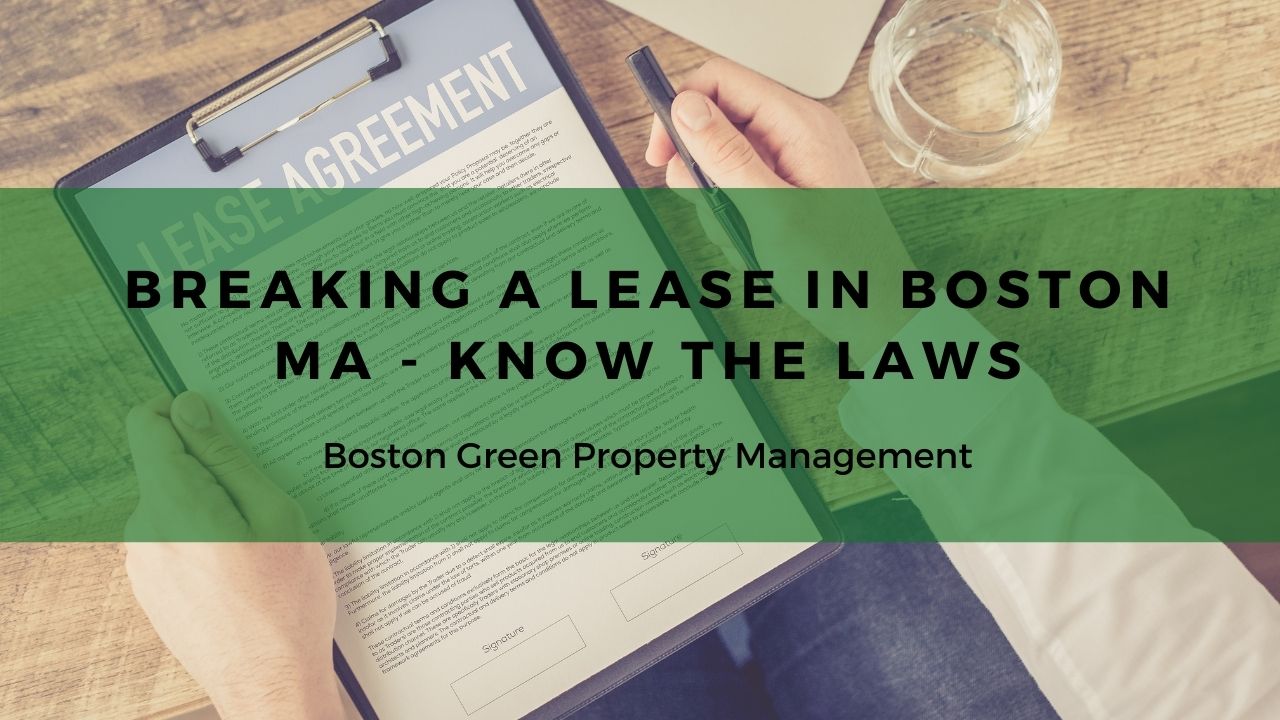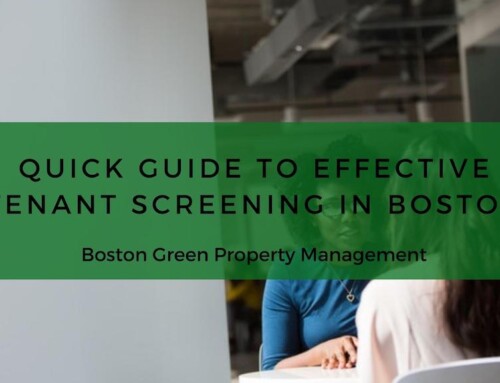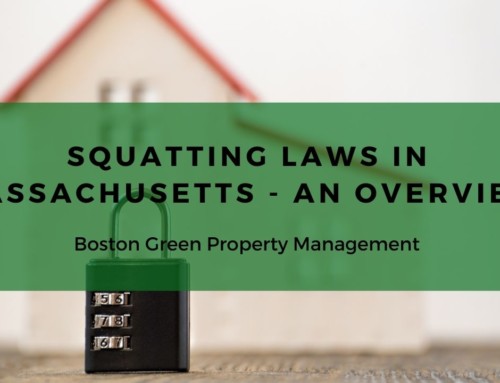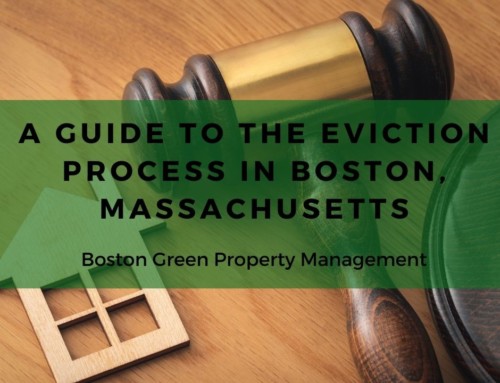Generally, Massachusetts landlords require tenants to sign a lease before living in their rental homes. Once the two parties sign it, they become contractually bound for a certain period of time, usually a year.
During that time, both parties must abide by all terms of the lease. Your tenant, for example, is contractually bound to pay all rent due under the lease or rental agreement. That’s regardless of whether they live there or not.
Unfortunately, despite this agreement, there are times where leases are broken. Your tenant may experience a major life event that can force them to break their lease. It could be, for instance, that they have experienced domestic violence. It’s also possible that they may need to relocate for a new job or school. The reasons could be many and varied.
So, what should you do when your Massachusetts tenant breaks their lease? Well, that’s what this article aims to answer. You’ll learn when a tenant can legally break their lease, when they can’t, and whether the law compels you to “mitigate damages” by re-renting the unit.
When Can a Tenant Legally Break a Lease in Massachusetts?
Your tenant may have a legal justification to break their lease agreement. This means that they can legally break the lease without incurring any financial penalty.
1. Early Termination Clause
Does your lease contain an early termination clause? If it does, then your tenant could use it to break the contractual agreement. Landlords include early termination clauses in their lease agreements to make it easy for tenants to terminate their lease rather than go through what can be a long and messy process.

Typically, a tenant must meet two requirements for early termination: one, they must pay a fee. This is usually the equivalent of two months’ rent. This usually helps landlords meet the costs of re-renting the unit. And two, the other requirement is proper notice. A tenant is usually required to provide their landlord with a notice of at least 30 days.
2. Domestic Violence
If your tenant has become a victim of domestic violence, stalking, rape, or sexual assault, they can break their lease legally. This is as per state law (Mass. Gen. Laws Ann, ch. 186 § 24).
That said, before the tenant can break free from their contractual obligations, they must first meet certain requirements. For example, show proof of a valid protection order and provide proper notice.
3. Habitability Issues
Tenants in Massachusetts have a right to live in a habitable dwelling. If you fail in this responsibility, a court would probably deem you to have constructively evicted your tenant.
By providing unlivable living conditions, you would be, for all practical purposes, “evicting” your tenant. As such, your tenant will have no legal responsibility to pay you rent, nor can you take from their security deposit to cover damages out of their control.
In Massachusetts, a habitable rental property is one that:
- Is free from cockroaches, rodents, and insect infestation
- Has a working kitchen
- Has functioning heating facilities
- Has running water and reasonable amounts of hot water
4. Active Military Duty
If your tenant enters active military service after the lease signing, they have a right to break it under federal law. The Servicemembers Civil Relief Act protects active service members who have been deployed or have received permanent change of station.

In Massachusetts, the term “servicemember” means members of the:
- Armed Forces
- Activated National Guard
- Commissioned Corps of the Public Health Service
- Commissioned Corps of the National Oceanic and Atmospheric Administration
Your tenant must meet certain requirements prior to breaking their lease, in accordance with the act. They must show proof of two things: that they signed the lease before entering active duty and that they intend to remain in service for at least the next ninety days.
Your tenant must also provide you a proper notice that’s accompanied by a copy of the deployment letter.
5. Landlord Harassment
Could you be harassing your tenant? If the actions are serious enough, your tenant may have a legal justification to break their lease.
Whether inadvertently or otherwise, all forms of landlord harassment are illegal in Massachusetts. Basically, landlord harassment occurs when the landlord creates conditions meant to discourage the tenant from continuing to live in their rental premises.
The following are examples of landlord harassment:
- Deliberately destroying your tenant’s property
- Creating unnecessary nuisance to disrupt your tenant’s peace and quiet enjoyment of their rented premises
- Refusing to accept or otherwise acknowledge receipt of rent payment
- Trying to evict your tenant without following the due eviction process
- Withholding amenities that you previously provided your tenant
- Ignoring your tenant’s maintenance requests
- Threatening your tenant with financial injury such as reporting them to a credit bureau or lying to future landlords about their rental history
- Physically intimidating your tenant or threatening them with violence
6. Privacy Violation
Your Massachusetts tenants have a right to privacy. In other words, they have a right to be served proper notice before you can enter their rented premises. Unlike some other states, however, Massachusetts state law doesn’t specify how much notice landlords must provide their tenants with prior to entry.

That said, you have an obligation to provide your tenant with a “reasonable” notice. 24 hours is recommended. (MGL c.186 § 15B(1)(a)).
The reason for the entry must also be reasonable. Common reasons for landlord entry include:
- In cases of emergencies
- Under court orders
- To inspect the unit
- In case of property abandonment
- To show the unit to prospective tenants, buyers, or lenders
When is Lease-Breaking Illegal in Massachusetts?
Your tenant will not have any legal protection against penalties for breaking the lease due to the following reasons:
- Relocating to a new job or school
- Divorce
- Upgrading or downsizing
- Moving in with a partner
Do Massachusetts landlords have a legal obligation to find a replacement tenant?
Yes. According to the statewide landlord-tenant law, you must make reasonable efforts to re-rent the unit. The Massachusetts Consumer Guide to Landlord Rights and Responsibilities provides more details in this regard.
Bottom Line
Breaking a lease in Massachusetts is something landlords never want to deal with, but it’s inevitable that it’ll occur for every rental property owner at some point. Knowing the difference between what is legal and what is not, however, can make the process that much easier.
If you’re dealing with a potential lease-breaking situation or would like this handled for you in case it comes up in the future, contact Boston Green Property Management today! We can help you with all your property management needs.
Disclaimer: The information herein is intended to be informational only. For expert help, consider speaking to a qualified attorney or directly to an experienced property management company like Boston Green Property Management.


















